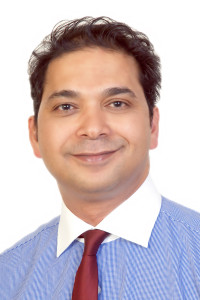A practicing orthopaedic surgeon sees a variety of musculoskeletal conditions routinely in his clinic. There are some conditions that are straightforward to diagnose and treat. There are some conditions that are straightforward to diagnose but difficult to treat. There are some conditions where orthopaedic surgeon runs out of ideas as, the persistent symptoms bother the clinician as well as the patient. This is when the clinician looks around for any other treatment modality that can be safe and help his patient.
“Orthobiologics” is a new terminology being used in orthopaedics. Essentially, it means the use of body`s own healing potential in treating some conditions. This could be patients own blood product or any other tissue. This concept is termed as “Biological augmentation”.
Today, there is an increasing interest in the use of autologous blood products to facilitate healing in a variety of musculoskeletal ailments. With newer focus and discovery we have now learnt more about specific growth factors, present in blood, which play a crucial role in the healing process. Platelet –rich plasma is one such product, which is increasingly being used, in orthopaedic clinical practice.
There are other forms of biological therapy being used in clinical practice as well. These include the use of stem cells and autologous chondrocytes for treating cartilage and bone defects. There is a lot of research going on around the world and a number of scientific papers are being published on the use of these products. Like any other form of therapy, there is still a lot of debate among the clinicians today. There are some who argue that strong scientific evidence for the use of these therapies is still lacking while there are some others who strongly recommend their use in clinical practice. For the moment, it appears that use of biologics in orthopaedic clinical practice is an attractive option in conditions that are recalcitrant. The major attraction is that these therapies are safe as the product comes from patient`s own body. However, there are concerns about the correct formulations and one needs to study the available evidence, the indications and formulations thoroughly before starting this therapy on their patients.
Keeping the debate in mind, surgeons should learn to collaborate. The ultimate goal should be to share what we are learning, to compare results, collaborate on promising treatments, and disseminate this important information to the orthopaedic community at large.
 Vijay D Shetty
Vijay D Shetty
Consultant Orthopaedic Surgeon
Dr LH Hiranandani Hospital
http://www.hipandkneesurgeonmumbai.com
Mumbai, India

